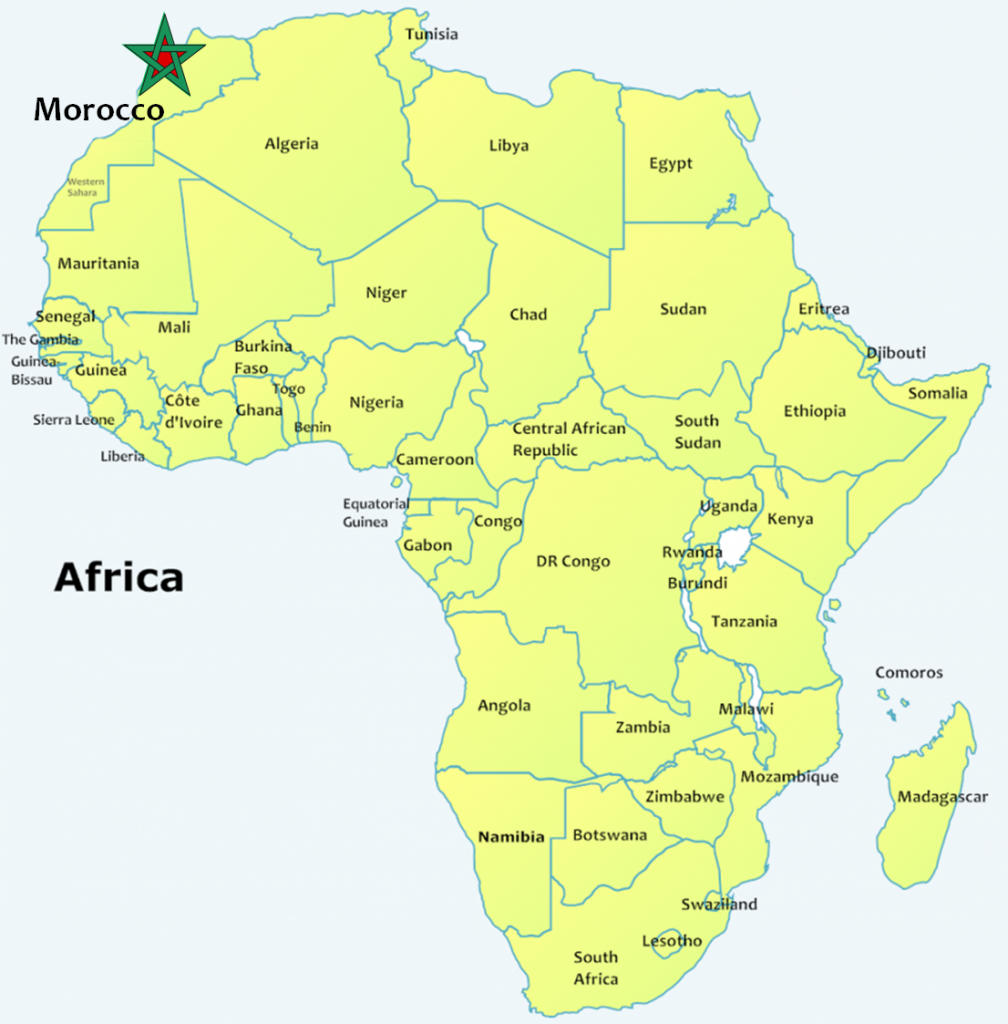![King Mohammed VI delivers his address to the nation: Photo: MAP]()
King Mohammed VI delivers his address to the nation. Photo: MAP
* King Mohammed VI addresses the nation on the 15th anniversary of his ascension to the throne, taking stock of the progress and development in Morocco*
Maghreb Arab Press (July 30, 2014) — King Mohammed VI, on Wednesday in Rabat, gave an important speech on the occasion of the 15th anniversary of the throne day.
.
.
![Morocco's King Mohammed VI]()
Morocco’s King Mohammed VI
“Praise be to God
May peace and blessings be upon the Prophet, His Kith and Kin
Dear Citizens,
Today, we are proudly celebrating the fifteenth anniversary of my accession to the glorious Alawite throne. This annual celebration is ran opportunity for us to ponder on the state of the nation.
I do not want this to be merely a time when we take stock of achievements. However significant they may be, they will always fall short of the ambitions I nurture for my loyal citizens.
I would rather this celebration were an occasion to pause and reflect, in all sincerity and objectivity, on the positive as well as the negative aspects of our action in order to move forward confidently and resolutely.
I am not only interested in achievements, but also and above all in the actual, qualitative direct impact our accomplishments have had in terms of improving the living conditions of all Moroccans.
Whereas it is, indeed, natural for a person to pause every now and then to determine where he or she is going, such an exercise is even more important for the nation’s first servant, who is responsible for more than 35 million people.
Considering the sacred mission with which I am entrusted as the King of all Moroccans, each day and every step of the way, I consult others and give due consideration to matters before making any decision that has a bearing on the nation or the citizens.
Are we making the right choices? What things need to be sped up? What others should to be reconsidered? What major projects and reforms ought to be launched?
If a person thinks that he or she is always right, or that he or she does not make mistakes, then surely this will be a recipe for conceit and erring.
For this reason, I believe we must all ask ourselves: Have the accomplishments and the real progress made had the desired, direct impact on Moroccans’ living conditions? Does the Moroccan citizen – irrespective of income, social status or place of residence, whether in urban or rural areas – feel that he or she is indeed better off as a result of the major projects implemented and the reforms introduced.
By asking such questions, our aim is, in fact, to constantly improve efficiency and find the best ways to enable all Moroccans to benefit from achievements on an equal footing.
However, the fact that we ask questions and pause does not mean we are hesitant or unsure, or that we have no clear vision. On the contrary, the way forward is crystal clear, and our choices are well thought-out. We know who we are, what we want and where we are going.
Dear Citizens,
By assessing the state of the nation, we can gauge the progress made, using all standard mechanisms for that purpose.
Back in 2005, we made a similar pause and came up with the 50-Year Report to take stock of the work done and pinpoint shortcomings for the post-independence period, and also to assess expectations. The aim of that exercise was to devise more effective public policies.
Today, fifteen years after my accession to the throne, I think it is important to pause, once again, as a nation.
Moroccan as well as foreign experts agree that significant progress has been made in various areas in Morocco during this period.
Personally, I do not think anyone can deny that democratic achievements have been made. This is illustrated by the new Constitution adopted in 2011, by the freedoms and human rights system in force in the country and by the launching of the advanced regionalization project. However, the tangible impact of these and other reforms hinges on their actual implementation as much as on the elites that will give them concrete substance.
Nor can anyone deny that major infrastructure projects have been implemented. Could Moroccans – myself included – have imagined that their country would one day be home to the largest port in the Mediterranean? Or have the largest solar power plant in the world? Was it possible in the past for a citizen to take the freeway from Agadir to Tangiers, or from El Jadida to Oujda?
In the economic sphere, growth rates have increased significantly thanks to the adoption of ambitious sectoral plans, such as Morocco’s Green Plan and the Emergence Plan for industrial development, among others.
It should be noted that progress in the above areas has not been made at the expense of human development. Across the country, beneficiaries of human development programs have borne witness not only to these projects’ direct impact in terms of improving their living conditions, but also to their role in fighting poverty, social exclusion and marginalization in our country.
The question remains: What use have we made of this progress? Has it merely contributed to higher levels of consumption, or have we used it to promote prosperity for all Moroccans? To what extent has this progress translated into better living conditions for the citizens?
Dear Citizens,
I think the Moroccan development model has reached such a level of maturity that it is possible for us to adopt advanced, precise standards to assess the effectiveness of public policies and determine the extent to which they have a tangible effect on the citizens’ lives.
This achievement has been confirmed by the World Bank, which indicated that Morocco’s total wealth has increased significantly in recent years, thanks in particular to the substantial growth of its intangible capital.
Intangible capital is one of the latest internationally agreed standards for measuring the total wealth of countries and companies.
As I am sure you know, there have been various changes in the standards used by economists and financial specialists to measure wealth.
The total wealth of states used to be measured in light of their natural resources, then on the basis of the gross domestic product, which, in turn, is indicative of the citizens’ standard of living.
Later on, human development indicators were adopted to determine levels of prosperity and the extent to which peoples benefit from the national wealth. During the 1990s, intangible capital became an essential constituent of wealth. In 2005, it was formally adopted by the World Bank as a standard benchmark.
Intangible capital refers to constituents of wealth that are not taken into account by conventional financial approaches.
The reference here is to the measurement of a country’s historical and cultural heritage, social and human capital, the confidence it inspires as well as stability, the quality of institutions, innovation and scientific research, cultural and artistic creativity, the quality of the environment and so on.
Security and stability, for instance, are the cornerstone of production and the creation of wealth. Similarly, trust and credibility are key ingredients to boost investment. However, these assets are not visible in the total wealth of countries.
In 2005 and 2010, the World Bank carried out two studies to measure the total wealth of some 120 countries, including Morocco. Our country ranked among the top African nations, far ahead of some countries in the region.
Having perused the figures and statistics contained in the said studies, and which highlight the development of wealth in Morocco, I wonder, as do all Moroccans: Where is this wealth? Has it benefited all Moroccans or only some segments of society?
No in-depth analysis is really needed to answer these questions. While there has been significant progress in Morocco, the facts on the ground indicate that not all citizens have benefited from this wealth. During my field visits, I have noticed signs of poverty and vulnerability, as well as acute cases of social inequality.
Therefore, and in order to assess the situation properly and accurately, I call on the Economic, Social and Environmental Council to carry out a study of Morocco’s total wealth between 1999 and the end of 2013, in cooperation with the Moroccan Central Bank and the national institutions concerned, and in coordination with specialized international institutions.
The objective of the study is not only to highlight the value of our country’s intangible capital, but also to make sure intangible capital is used as a key standard in the development of public policies, so that all Moroccans may benefit from their country’s wealth.
I hope this study will come up with an objective assessment of the situation as well as practical recommendations in this regard.
To make sure the study’s final report does not remain just words on paper, or a document merely for the media, I have decided that its findings should be widely disseminated. In this respect, I urge the government, parliament, all the institutions concerned and key players in society to study those constructive recommendations and seek to implement them.
Since the measurement of intangible wealth helps in decision-making, I want the census which will be carried out this year to include all types of indicators relating to Morocco’s intangible capital.
Dear Citizens,
I attach as much importance to improving the citizens’ living conditions as I do to safeguarding their spiritual well-being and to consolidating the Moroccan model for the management of the religious domain.
Based on the Commandership of the Faithful as a frame of reference and on the Maliki rite, this distinct model is the result of the thorough reforms we have introduced over the last fifteen years to promote and revamp the religious domain.
This model aims to protect the citizen and society against extremism, reclusiveness and ignorance by protecting mosques from any kind of exploitation, making sure they remain places of worship, where guidance is provided and literacy promoted.
This is exactly what the 2008 Ulema Charter aims for. We have further consolidated that Charter by the “support plan” for local religious guidance, which I launched recently, and which is being implemented by more than 1,300 imams across the Kingdom.
The key element of this model is the provision of enlightened religious training that is grounded in the principles of moderation and that seeks to preserve our immutable Islamic values while promoting ijtihad and openness. Through this approach, we are making sure our pristine faith is consistent with our national choices and the requirements of modern times.
For this reason, the Moroccan model for the management of religious affairs has been commended both at African and international levels.
In this respect, we are keen to put the Moroccan experience at the disposal of sister nations that share Morocco’s commitment to the same spiritual values and principles, and that have expressed a desire to benefit from the Moroccan model in such areas of cooperation as the training of imams.
Dear Citizens,
Given the consistency and harmony between our country’s domestic and foreign policies, I seek to make the most of our democratic development model to further enhance Morocco’s image and standing in the international arena, and defend its best interests as well as its just causes.
Considering the rapid changes affecting the world, I have sought to ensure that the Moroccan diplomatic approach is rooted in self-confidence, proactive thinking, realism and effectiveness. I have also seen to it that our policy is guided by a commitment to legitimacy, openness, moderation and respect for universal values.
This has made our country an effective, credible partner that is heeded and trusted. Working together with the dynamic actors in society, I have been keen to promote and consolidate our country’s standing at all levels.
As regards the Maghreb, I should like to say, once again, that I keenly look forward to seeing a strong union built on the firm foundation of solid bilateral relations and integrated economic projects.
I personally believe that disputes are not inevitable and that they are quite normal in all communities. Inside the European Union, for example, there have been disagreements between EU members, but the breaking point is hardly ever reached. What is regrettable in the Maghreb, however, is that a dispute is allowed to continue for the purpose of disrupting the evolution of the Maghreb Union.
Whatever the magnitude of the dispute, it should not, for instance, be used as a pretext for the continued closure of the borders. The situation is such that Maghreb citizens do not understand or accept such a state of affairs. Indeed, a number of people whom I met during my visits to sister nations wondered – rather perplexed – about the reasons for the continued closure of the border and asked that barriers between our peoples be removed.
My answer to them has always been the same: for more than six years now, Morocco has been calling for a solution to this odd situation. However, the response to all of Morocco’s constructive initiatives has been a stubborn, systematic refusal which is not only inconsistent with the logic of history and legitimacy, but also out of step with our peoples’ natural entitlement to human interaction and economic exchange.
As I pointed out earlier, I am keen to ensure bilateral relations are the mainstay of the Maghreb Union. In this respect, I wish to say how satisfied I was with the positive outcome of the visit I paid recently to Tunisia, and how much I appreciated the hospitality and warm welcome extended to me, both by the noble Tunisian people as well as by their country’s representative institutions. I was most touched by that warmth.
I am convinced Tunisia will forge ahead along a peaceful path, consolidate the institution-based state and achieve development and prosperity for the Tunisian people.
As regards the Arab world, the catastrophic situation in which several Arab countries find themselves is, indeed, a matter of profound sadness and concern.
The crisis in both Syria and Iraq illustrates the seriousness of the situation the Arab world is facing today – a predicament which is fueled by the politics of exclusion and sectarian strife. This situation compounds the humanitarian tragedy that has befallen the peoples of these two sister nations.
It is much more than just a regional crisis. This is a fertile breeding ground for the most violent forces of extremism and terror which seriously threaten the security of our countries as well as global security and stability.
Today, more than ever, we need a comprehensive Arab order based on economic integration and political unity and cohesion to turn the Arab world into an influential geopolitical force in the international arena – a bloc which is capable of defending crucial Arab causes.
The brotherly bonds and mutual understanding between me and the leaders of the Gulf Cooperation Council Member States, and Morocco’ special partnership with these sister nations are a source of deep satisfaction.
Regarding the Palestinian issue, I reiterate my strong condemnation of the brutal Israeli aggression in the Gaza Strip.
As a sign of tangible solidarity with our Palestinian brothers and sisters in their ordeal, we were among the first to provide material aid to the victims of this aggression, putting Moroccan hospitals at the disposal of the wounded to alleviate their suffering in these critical circumstances.
I reiterate my support for all constructive international initiatives aimed at achieving a just and lasting peace on the basis of the two-state solution.
In keeping with our sacred mission to defend Al-Quds al-Sharif, the Al-Quds Committee, which I am honored to chair, adopted a series of sound recommendations during its 20th session which was held in Marrakech. They back the peace negotiations and call for the protection of the cultural and spiritual character of Al-Quds against the illegal Israeli violations.
During that same meeting, a five-year strategic plan of action for the Bayt Mal al-Quds al-Sharif Agency was adopted with a view to providing support to vital sectors through well thought-out projects in terms of time frame and funding mechanisms.
To bolster the steadfastness of our Maqdissi brothers and sisters on their land, I am particularly keen to ensure the Agency keeps up its action on the ground, provides the inhabitants of Al-Quds with direct, tangible support and seeks to meet their pressing needs.
Dear citizens,
I believe Africa is capable of revival.
Such an objective, however, will be attained only if Africa’s sons and daughters rely on their own capabilities. I wish, in this regard, to repeat what I said in Abidjan: Africa should learn to have faith in Africa.
I reiterate, in this respect, Morocco’s commitment to implementing a comprehensive, coherent policy towards African sister nations, based on the joint development of resources, more effective human development and greater economic cooperation.
This commitment is illustrated by the visits I have paid to several African sister countries, as well as by both the number and the nature of the agreements signed, which lay the groundwork for a distinct, efficient South-South partnership that I would like to see rooted in solidarity.
I also wish to reiterate my commitment to multipartite and triangular cooperation mechanisms in order to forge balanced, mutually beneficial partnerships with countries of the North.
Considering the growing security threats – particularly in the Sahel and Sahara region – I once again call for collective action to deal with terrorist groups, which find allies in separatist movements, human trafficking gangs and arms and drug dealers because of their converging interests. These groups represent the most serious threat to regional and international security.
As Morocco naturally turns towards Africa, this does not mean it will do so at the expense of our country’s relations with its international partners. On the contrary, this policy will open up broader prospects for partnership between the North and the South.
In this regard, I do not perceive Morocco’s Advanced Status with the European Union as an end in itself, but rather as a milestone on the path towards strengthening the Morocco-EU partnership, which I would like to be balanced and equitable.
For this reason, Morocco is particularly keen to ensure the success of the current negotiations for a thorough and comprehensive free trade agreement with the EU to serve as a framework for even closer ties between Morocco and Europe, as well as for the integration of the Moroccan economy into European domestic markets.
As well as consolidating its special relations with the European bloc, Morocco seeks to diversify and expand its bilateral relations with EU members.
As regards Morocco’s historical relationship with the United States of America, I should like to reaffirm my commitment to consolidating the strategic partnership with the United States, particularly by devising new mechanisms to support and promote the free trade agreement and continue our strategic dialogue with that country.
During the meeting I had with President Obama last November, we managed to give strong impetus to our partnership. The results are starting to show, be it with respect to our bilateral relations, or the similarity of views regarding regional and international issues of common concern, especially those relating to development and security in Africa.
To further promote our open policy and diversify Morocco’s partnership relations, I am also keen to strengthen the Kingdom’s time-honored ties with both the Russian Federation and the Republic of China – countries that I look forward to visiting in the near future.
I am determined to ensure that the economic aspects of Morocco’s special strategic partnership with these two countries are further enhanced and promoted.
Dear Citizens,
Thanks to the Kingdom’s sovereign, pragmatic foreign policy, we have managed to rejuvenate and revamp our diplomatic action.
Moreover, I have sought to ensure that all of the nation’s key actors are actively involved in defending our country’s best interests, particularly our territorial integrity, which remains our foremost priority.
As I have said time and again, the question of the Sahara is the cause of all Moroccans. This is a sacred responsibility for all of us.
In this regard, I call for greater vigilance and across-the-board mobilization. I also recommend that the necessary measures be taken to remain one step ahead of our opponents’ schemes. Indeed, there is no room for wait-and-see attitudes, reliance on others or reactive behavior.
I also reaffirm my commitment to the autonomy initiative for our southern provinces. Once again, the Security Council, in its latest resolution, described that initiative as “serious and credible”.
In any case, we shall not put the region’s future at risk. That is why we shall carry on with development and modernization projects there, particularly through the implementation of the development model for our southern provinces. This model is based on a participatory approach, on good governance and on cohesive, multidimensional programs aimed at achieving integrated development.
Advanced regionalization will be introduced in all of the Kingdom’s regions, and first and foremost in our southern provinces. Indeed, regionalization makes it possible to promote local specificities while enabling the regions’ populations to democratically manage their local affairs in a country that harmoniously brings its regions together.
Finally, I should like to pay tribute to our Royal Armed Forces, the Royal Gendarmerie, the National Security Forces, the local authorities, the Auxiliary Forces and the Emergency Services for their constant mobilization under my leadership to defend the nation’s territorial integrity and preserve its security and stability.
I also remember, with deep respect, my venerated grandfather and father, Their Majesties King Mohammed V and King Hassan II, as well as all the martyrs of the nation, who made great sacrifices for the glory and sovereignty of our country. May they all rest in peace.
As a tribute to their eternal memory, we shall carry on with development and modernization projects to ensure all our citizens – wherever they may be – enjoy a dignified life in a secure, safe and stable environment, God willing.
“My Lord, make this a City of Peace, and feed its people with fruits”. True is the Word of God.
The post Full Text of King Mohammed VI’s Address to the Nation Marking Morocco’s Throne Day – MAP appeared first on Morocco On The Move.



 You certainly wouldn’t guess, if you didn’t already know, that Western Sahara is still darkened by the long shadow of the Cold War or that the place still quietly bleeds from the unhealed wounds cut by Qaddafi and Castro, but foreign correspondents almost never go down there, and governments outside North Africa rarely give the problem more than a single passing thought every couple of years. Western Sahara’s citizens don’t know how to suffer in ways that stir activists or make headlines, but they are suffering. Tens of thousands are to this day held in refugee camps—which are really more like concentration camps—across the border in Algeria. They’ve been living in squalor as hostages in one of the planet’s most inhospitable places almost as long as I’ve been alive. Hardly anyone on earth has ever heard of them.
You certainly wouldn’t guess, if you didn’t already know, that Western Sahara is still darkened by the long shadow of the Cold War or that the place still quietly bleeds from the unhealed wounds cut by Qaddafi and Castro, but foreign correspondents almost never go down there, and governments outside North Africa rarely give the problem more than a single passing thought every couple of years. Western Sahara’s citizens don’t know how to suffer in ways that stir activists or make headlines, but they are suffering. Tens of thousands are to this day held in refugee camps—which are really more like concentration camps—across the border in Algeria. They’ve been living in squalor as hostages in one of the planet’s most inhospitable places almost as long as I’ve been alive. Hardly anyone on earth has ever heard of them. I flew down there from the Moroccan capital in early 2014 and could see from the air that I was about to land in a place no closer to anywhere else of significance on land than Ascension Island way out in the Atlantic. The city of Dakhla, my destination, is a bubble of sorts. It’s a seaside town on the edge of the Sahara Desert and closer to Africa’s tropical forests than to the Mediterranean on the continent’s north coast, yet the climate is near-perfect. The average high temperature in January is room temperature, and even in August it’s just 82 degrees Fahrenheit—the same summer high as in the mild Pacific Northwest. The cool waters of the Atlantic create a razor-thin coastal microclimate that spares Dakhla’s people from the infernal heat of the desert that broils alive anyone who dares venture far from the beach. Few live out in the wasteland. Western Sahara is one of the world’s least-densely populated areas. It’s two-thirds the size of California, but only 800,000 people live in the whole of it, fewer than in metropolitan Omaha.
I flew down there from the Moroccan capital in early 2014 and could see from the air that I was about to land in a place no closer to anywhere else of significance on land than Ascension Island way out in the Atlantic. The city of Dakhla, my destination, is a bubble of sorts. It’s a seaside town on the edge of the Sahara Desert and closer to Africa’s tropical forests than to the Mediterranean on the continent’s north coast, yet the climate is near-perfect. The average high temperature in January is room temperature, and even in August it’s just 82 degrees Fahrenheit—the same summer high as in the mild Pacific Northwest. The cool waters of the Atlantic create a razor-thin coastal microclimate that spares Dakhla’s people from the infernal heat of the desert that broils alive anyone who dares venture far from the beach. Few live out in the wasteland. Western Sahara is one of the world’s least-densely populated areas. It’s two-thirds the size of California, but only 800,000 people live in the whole of it, fewer than in metropolitan Omaha.
 The decree called on all those who work in Morocco’s religious institutions to display “characteristics of poise, righteousness and prowess,” and prevents them from “practicing any activity” that seeks financial gain in the public and private sectors “unless there’s a written license from the government.” However, the decree excludes “educational, intellectual and creative works which do not contradict with the nature” of religious institution’s tasks.
The decree called on all those who work in Morocco’s religious institutions to display “characteristics of poise, righteousness and prowess,” and prevents them from “practicing any activity” that seeks financial gain in the public and private sectors “unless there’s a written license from the government.” However, the decree excludes “educational, intellectual and creative works which do not contradict with the nature” of religious institution’s tasks.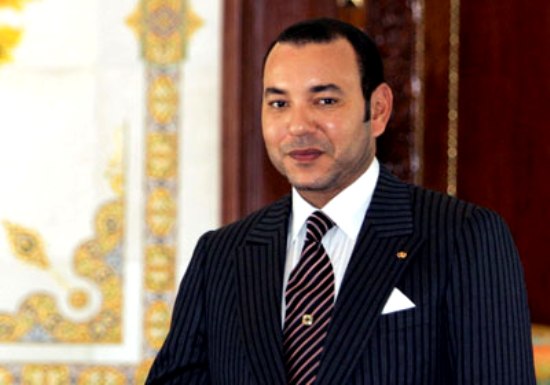
 The King also affirmed his confidence that the “continuation of regular contacts and consultation, both at the personal and institutional levels, is likely to pave the way for joint action between the two countries, serving the best interests of the two brother peoples.”
The King also affirmed his confidence that the “continuation of regular contacts and consultation, both at the personal and institutional levels, is likely to pave the way for joint action between the two countries, serving the best interests of the two brother peoples.”
 The law covers the basic principles of Sharia finance, defines concepts, details the wording and scope of contracts and transactions, and outlines consumer protection measures and the supervision of participating banks by Bank al-Maghrib. A range of financial products and services will be offered not only to Moroccans within the kingdom but also to those living in countries where participatory finance products are available.
The law covers the basic principles of Sharia finance, defines concepts, details the wording and scope of contracts and transactions, and outlines consumer protection measures and the supervision of participating banks by Bank al-Maghrib. A range of financial products and services will be offered not only to Moroccans within the kingdom but also to those living in countries where participatory finance products are available.

 He remembered the “difficult conditions” under which his government was formed after the country lived the impact of mass protests similar to a number of neighboring countries, with the beginning of the Arab Spring in 2011. Stressing that the experiment of the current government has contributed to “lift the country out of a phase when the streets were inflamed and succeeded in keeping the streets of Morocco quiet today.” Benkirane said that people and nations have interacted with the popular movement in the Arab world to varying degrees which emerged as a deep shift and raised fears about the government’s ability to ensure the country’s stability and achieve political, economic and social reforms.
He remembered the “difficult conditions” under which his government was formed after the country lived the impact of mass protests similar to a number of neighboring countries, with the beginning of the Arab Spring in 2011. Stressing that the experiment of the current government has contributed to “lift the country out of a phase when the streets were inflamed and succeeded in keeping the streets of Morocco quiet today.” Benkirane said that people and nations have interacted with the popular movement in the Arab world to varying degrees which emerged as a deep shift and raised fears about the government’s ability to ensure the country’s stability and achieve political, economic and social reforms.

 As the muezzin’s voice radiates down over the long morning shadows, Abdul-Hakim finishes his prayer and steps out into the sunlight. Having given a blessing that begins “All things to the pious,” he claps his hands to gain an audience. All of a sudden, the story begins: “There was once a woodcutter named Mushkil Gusha,” he says, his voice rasping a tale from the “Arabian Nights.” “A man who was as honest and kind as any other alive …” Within an instant, a halqa has formed, a sacred circle of souls. Pressed shoulder to shoulder, the listeners crane forward, as they do, day in day out, every day. For them, Abdul-Hakim’s stories are a kind of magical lifeblood, a wisdom and an entertainment all rolled into one. “He transports us to distant kingdoms,” says Malik, a shopkeeper from a nearby perfume stall.
As the muezzin’s voice radiates down over the long morning shadows, Abdul-Hakim finishes his prayer and steps out into the sunlight. Having given a blessing that begins “All things to the pious,” he claps his hands to gain an audience. All of a sudden, the story begins: “There was once a woodcutter named Mushkil Gusha,” he says, his voice rasping a tale from the “Arabian Nights.” “A man who was as honest and kind as any other alive …” Within an instant, a halqa has formed, a sacred circle of souls. Pressed shoulder to shoulder, the listeners crane forward, as they do, day in day out, every day. For them, Abdul-Hakim’s stories are a kind of magical lifeblood, a wisdom and an entertainment all rolled into one. “He transports us to distant kingdoms,” says Malik, a shopkeeper from a nearby perfume stall.
 “Only he can weave magic like this. I was brought up with his tales, just as my own sons have been.” The hakawati, the storyteller, lowers his voice, a technique to draw the listeners in towards him. He takes his time, feeding them the tale as though it were some delicious sweet. A stone’s throw away, a healer is setting up his stall. He’s dressed in the light blue robe of the Tuareg, his skin as dark as his teeth are white. From an old Berber chest he pulls out his wares — a clutch of ostrich eggs, a pair of dried chameleons, a jaguar’s skull and an assortment of vials and jars, powders and homemade lotions. Beside him is another medicine man. His stock in trade is sulfur and antimony, dried damask roses, and a half-gallon pot of lizard oil.
“Only he can weave magic like this. I was brought up with his tales, just as my own sons have been.” The hakawati, the storyteller, lowers his voice, a technique to draw the listeners in towards him. He takes his time, feeding them the tale as though it were some delicious sweet. A stone’s throw away, a healer is setting up his stall. He’s dressed in the light blue robe of the Tuareg, his skin as dark as his teeth are white. From an old Berber chest he pulls out his wares — a clutch of ostrich eggs, a pair of dried chameleons, a jaguar’s skull and an assortment of vials and jars, powders and homemade lotions. Beside him is another medicine man. His stock in trade is sulfur and antimony, dried damask roses, and a half-gallon pot of lizard oil.


 The country of Morocco absorbs elements of surrounding cultures: France, Spain and Portugal. It is also strongly influenced by proximity to the Mediterranean, Africa, Persia as well as traditions of Islam. When all these cultures, colors and traditions mesh, a unique style emerges. Color and craftsmanship are the two defining elements of Moroccan decor. The colors are designed to punctuate the surrounding sea, sand and sky of the country. Light is an essential element of the Moroccan style. Natural light floods into Moroccan homes. Lighting fashioned from metal, colored glass and wood creates a romantic mood within the interiors of Moroccan residences. Craftsmanship is evident in even the smallest accessory.
The country of Morocco absorbs elements of surrounding cultures: France, Spain and Portugal. It is also strongly influenced by proximity to the Mediterranean, Africa, Persia as well as traditions of Islam. When all these cultures, colors and traditions mesh, a unique style emerges. Color and craftsmanship are the two defining elements of Moroccan decor. The colors are designed to punctuate the surrounding sea, sand and sky of the country. Light is an essential element of the Moroccan style. Natural light floods into Moroccan homes. Lighting fashioned from metal, colored glass and wood creates a romantic mood within the interiors of Moroccan residences. Craftsmanship is evident in even the smallest accessory.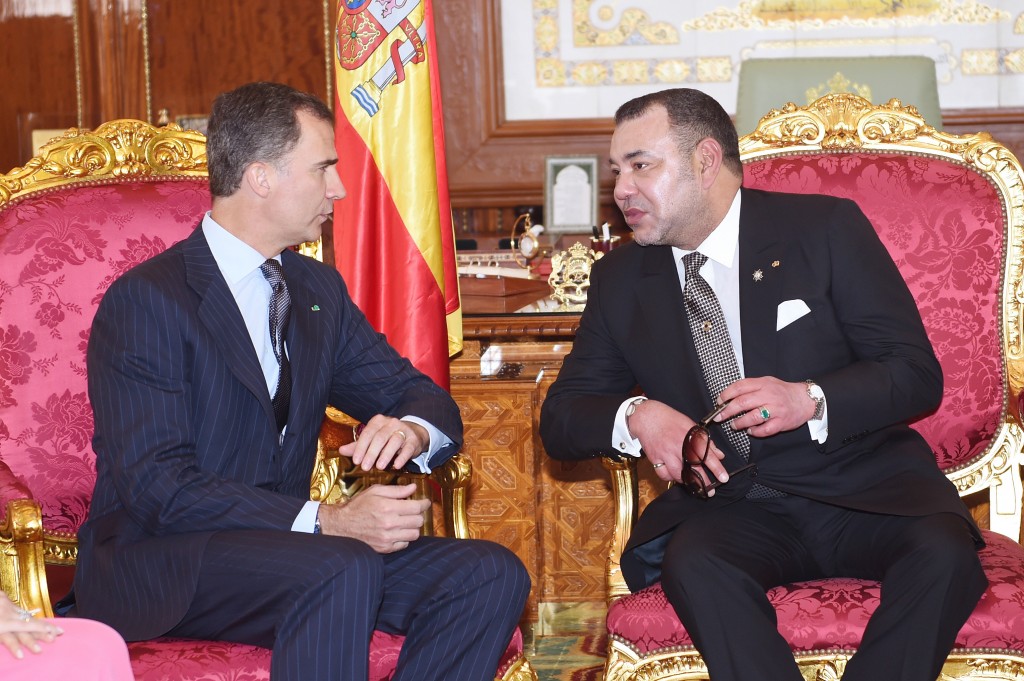
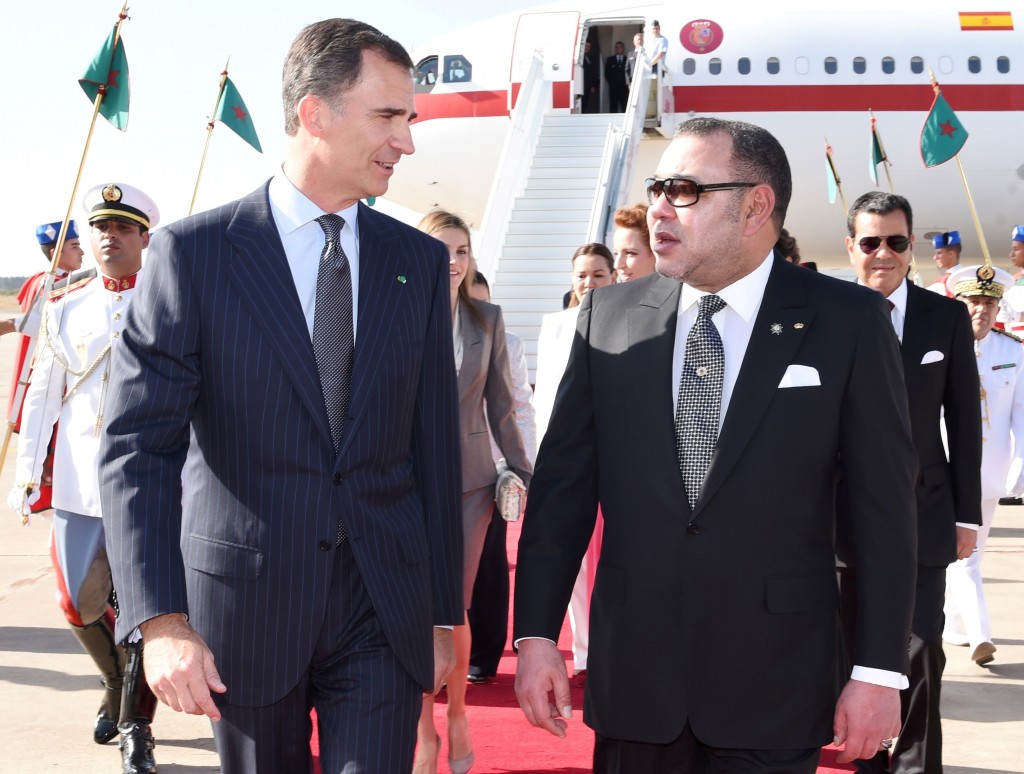
 Also present at the ceremony were the Spanish Foreign Minister Jose Manuel Garcia Margallo and his Moroccan counterpart Salaheddine Mezouar. On Tuesday Felipe VI is due to meet Moroccan premier Abdelilah Benkirane and will then inaugurate a tourism training centre, accompanied by Mohammed VI, while his wife will visit a cancer research center.
Also present at the ceremony were the Spanish Foreign Minister Jose Manuel Garcia Margallo and his Moroccan counterpart Salaheddine Mezouar. On Tuesday Felipe VI is due to meet Moroccan premier Abdelilah Benkirane and will then inaugurate a tourism training centre, accompanied by Mohammed VI, while his wife will visit a cancer research center.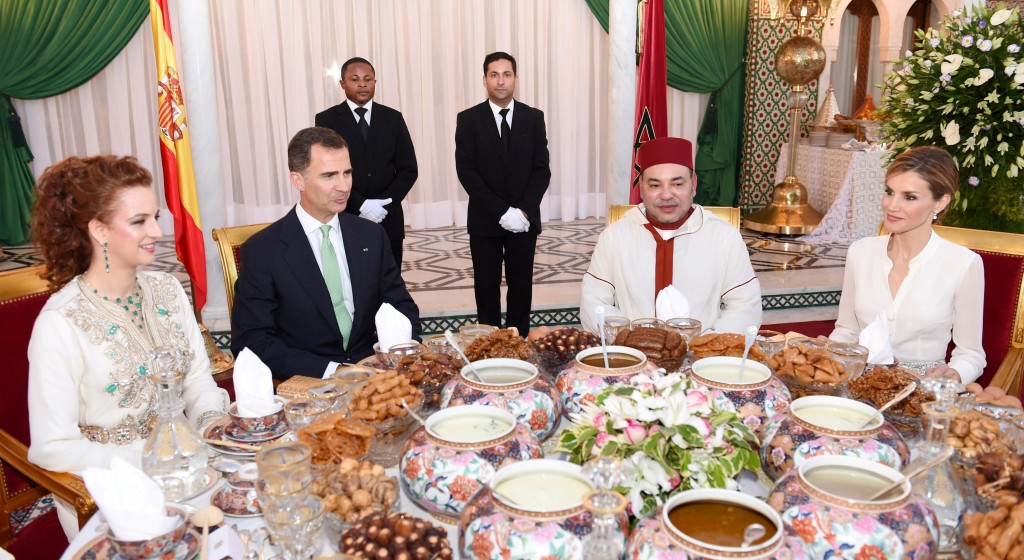




 That’s not exactly what’s going on at Moroccan Hospitality restaurant, the welcoming spot in Somerville. But the kitchen isn’t making some of the items listed on menu, and there’s a little confusion about what is available, more in communicating with some waitstaff. But when you get the food, it’s beautiful, richly seasoned, and made with care.
That’s not exactly what’s going on at Moroccan Hospitality restaurant, the welcoming spot in Somerville. But the kitchen isn’t making some of the items listed on menu, and there’s a little confusion about what is available, more in communicating with some waitstaff. But when you get the food, it’s beautiful, richly seasoned, and made with care.


 It was, however, in the aftermath of Hassan’s death that I knew that the political system in Morocco was more durable and resilient than many had thought. The transition happened without a glitch, as if it had been choreographed years ahead of time. The quiet and dutiful prince, Mohammed, was duly proclaimed king as the nation mourned his departed father. Mohammed VI hit the ground running to transform Morocco from a fortress state into an open modern stable democratic monarchy.
It was, however, in the aftermath of Hassan’s death that I knew that the political system in Morocco was more durable and resilient than many had thought. The transition happened without a glitch, as if it had been choreographed years ahead of time. The quiet and dutiful prince, Mohammed, was duly proclaimed king as the nation mourned his departed father. Mohammed VI hit the ground running to transform Morocco from a fortress state into an open modern stable democratic monarchy.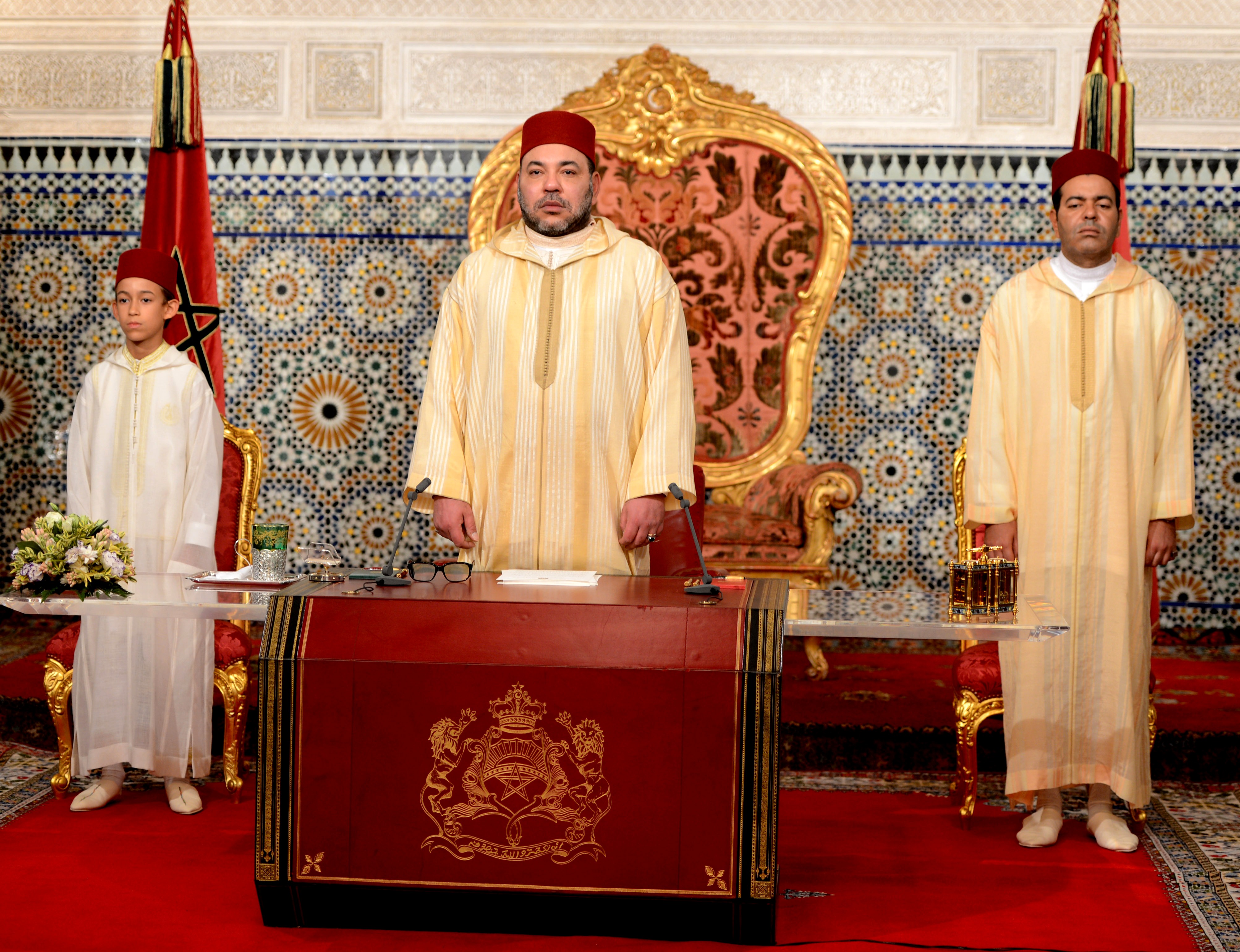
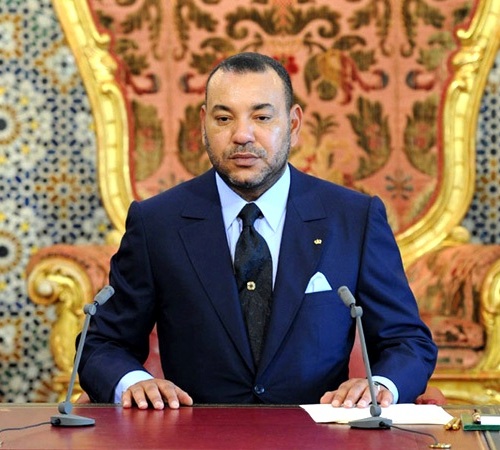


 Ambassador Gabriel spoke about Morocco’s annual Throne Day celebration, and in particular, how this 15th anniversary of King Mohammed VI’s rule marks a milestone in the continued political, social, and economic development of the country. Gabriel added that “Morocco and the King are on an irreversible path towards democracy, liberalization, openness, reform, and stability.” Gabriel outlined some of the many reforms and increased rights which have been extended and expanded consistently for the last 15 years, and expressed op.
Ambassador Gabriel spoke about Morocco’s annual Throne Day celebration, and in particular, how this 15th anniversary of King Mohammed VI’s rule marks a milestone in the continued political, social, and economic development of the country. Gabriel added that “Morocco and the King are on an irreversible path towards democracy, liberalization, openness, reform, and stability.” Gabriel outlined some of the many reforms and increased rights which have been extended and expanded consistently for the last 15 years, and expressed op.

 Yazami said that he made a recent appeal to the Moroccan parliament, asking that they work faster on continuing reforms. He reported that while human rights have improved, “there is still a long way to go.”
Yazami said that he made a recent appeal to the Moroccan parliament, asking that they work faster on continuing reforms. He reported that while human rights have improved, “there is still a long way to go.”


 The empowerment of women not only makes practical sense, but also is a good investment in economics, business, and counterterrorism. In micro lending, for every $1US a woman earns, she reinvests 90 percent back into her family and/or community; men re-invest only 40 percent. When a woman has an education, she marries on average four years later, enters into non-abusive relationships, and has 2.2 children who are healthier and better educated. Extremism is most effectively countered through increased education, better critical thinking, and enhanced opportunities. These empowerment scenarios and positive outcomes become manifest in the impact a woman has within her family and community. In the words of former Secretary to the United Nations Kofi Annan, “There is no development strategy more beneficial to society as a whole—women and men alike—than the one which involves women as central players.”
The empowerment of women not only makes practical sense, but also is a good investment in economics, business, and counterterrorism. In micro lending, for every $1US a woman earns, she reinvests 90 percent back into her family and/or community; men re-invest only 40 percent. When a woman has an education, she marries on average four years later, enters into non-abusive relationships, and has 2.2 children who are healthier and better educated. Extremism is most effectively countered through increased education, better critical thinking, and enhanced opportunities. These empowerment scenarios and positive outcomes become manifest in the impact a woman has within her family and community. In the words of former Secretary to the United Nations Kofi Annan, “There is no development strategy more beneficial to society as a whole—women and men alike—than the one which involves women as central players.”

 Many young people highlighted the need to pay particular attention to culture and new technologies in schools. Hamza Zainoubi, a 19-year-old student, said that children and young people were left to their own devices when it came to the massive amount of information online.
Many young people highlighted the need to pay particular attention to culture and new technologies in schools. Hamza Zainoubi, a 19-year-old student, said that children and young people were left to their own devices when it came to the massive amount of information online.

 Atlantic Council CEO and President Frederick Kempe opened the event with welcoming remarks, during which he spoke about the Atlantic Council’s links to Morocco and also thanked Council Board Director Ahmed Charai for his support of the Africa Center’s work on the country and, specifically, the new study. Pham then presented the report and moderated the ensuing panel discussion. The panel featured H.E. Moulay Hafid Elalamy, minister of industry, trade, investment, and the digital economy for the Kingdom of Morocco, Mohamed El Kettani, chairman and CEO of Attijariwafa Bank, Karim Hajji, CEO of the Casablanca Stock Exchange, Nabil Habayeb, GE’s president and CEO of Middle East, North Africa and Turkey, and H.E. Moustapha Ben Barka, minister of industry and investment promotion for the Republic of Mali.
Atlantic Council CEO and President Frederick Kempe opened the event with welcoming remarks, during which he spoke about the Atlantic Council’s links to Morocco and also thanked Council Board Director Ahmed Charai for his support of the Africa Center’s work on the country and, specifically, the new study. Pham then presented the report and moderated the ensuing panel discussion. The panel featured H.E. Moulay Hafid Elalamy, minister of industry, trade, investment, and the digital economy for the Kingdom of Morocco, Mohamed El Kettani, chairman and CEO of Attijariwafa Bank, Karim Hajji, CEO of the Casablanca Stock Exchange, Nabil Habayeb, GE’s president and CEO of Middle East, North Africa and Turkey, and H.E. Moustapha Ben Barka, minister of industry and investment promotion for the Republic of Mali.
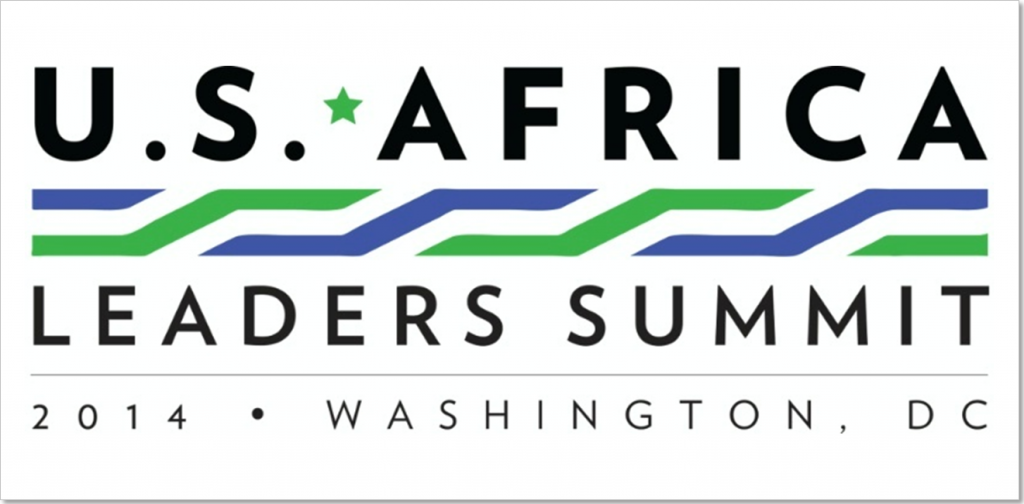 Several themes that echoed the report’s findings emerged during the panel discussion. All speakers agreed that the perception of Africa as a uniquely difficult and unrewarding place to do business is inaccurate and should change. Several noted the continent’s remarkable human and natural resources wealth, while others spoke of Morocco’s sophisticated financial services sector and strong and rewarding commercial ties with Europe, North America, sub-Saharan Africa, and beyond.
Several themes that echoed the report’s findings emerged during the panel discussion. All speakers agreed that the perception of Africa as a uniquely difficult and unrewarding place to do business is inaccurate and should change. Several noted the continent’s remarkable human and natural resources wealth, while others spoke of Morocco’s sophisticated financial services sector and strong and rewarding commercial ties with Europe, North America, sub-Saharan Africa, and beyond.